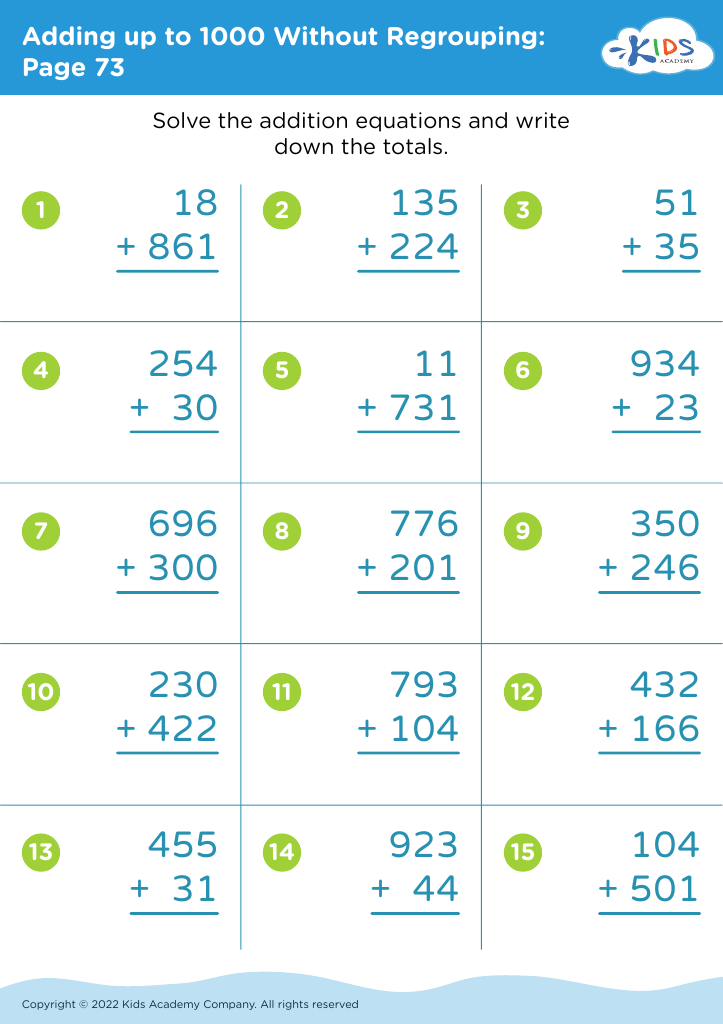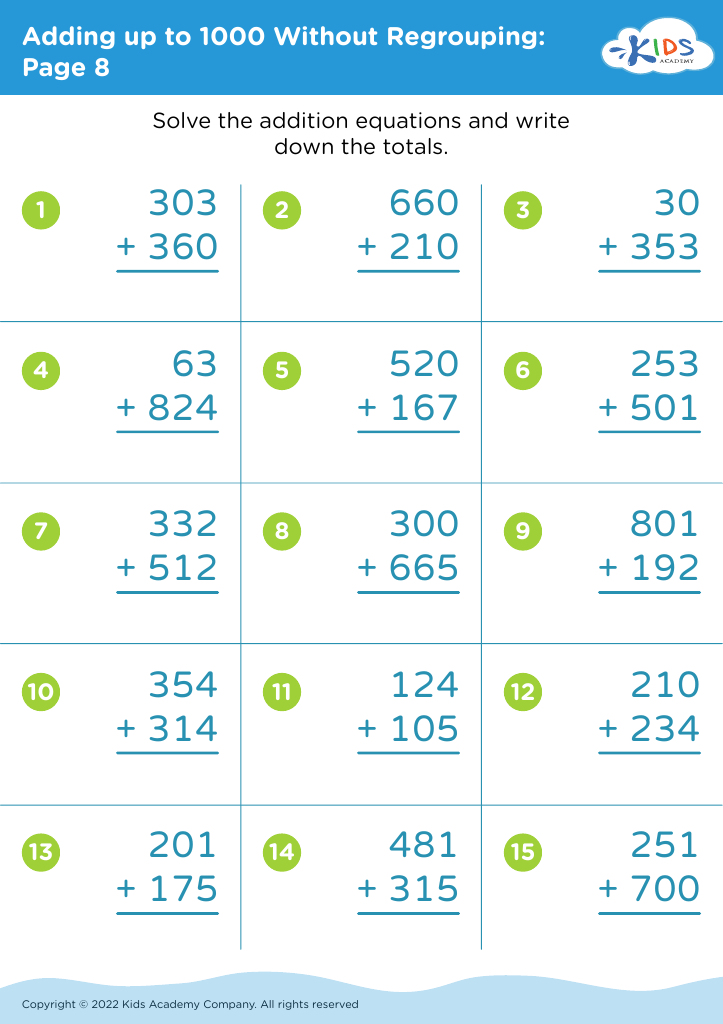Enhance comprehension Adding up to 1000 Without Regrouping Worksheets for Ages 3-7
4 filtered results
-
From - To
Welcome to our "Enhance Comprehension Adding up to 1000 Without Regrouping Worksheets" page, designed specifically for children aged 3-7. These engaging worksheets help young learners develop fundamental math skills by mastering addition without regrouping. Our carefully crafted resources aim to boost comprehension and confidence in mathematics, allowing kids to understand the concept of additive combinations while reinforcing number sense. Fun and interactive, these worksheets encourage independent learning and provide invaluable practice for little mathematicians. Explore our collection today to enhance your child's mathematical journey, laying a strong foundation for future academic success while cultivating a love for learning!
Enhancing comprehension in early math concepts, such as adding up to 1000 without regrouping, is crucial for children aged 3-7. The early years are foundational for cognitive development, and mastering basic arithmetic fosters a solid understanding of numbers and mathematical operations.
Parents and teachers should care because this skill not only supports future math abilities but also builds critical thinking, problem-solving, and analytical skills. Engaging with addition concepts helps children grasp the relationships between numbers, reinforcing their understanding of more complex ideas they will encounter later.
Moreover, when children are comfortable with addition without regrouping, they gain confidence in their abilities. This confidence encourages a positive attitude toward math, reducing anxiety and fostering a growth mindset. When youngsters feel successful, they are more likely to engage enthusiastically with subsequent challenges in math and other subjects.
Finally, strengthening comprehension at this age establishes a love for learning, creating an environment where curiosity and exploration thrive. By focusing on foundational skills, parents and educators give children essential tools that extend beyond the classroom, promoting lifelong academic and personal success. Thus, prioritizing this aspect of early education is fundamental for the holistic development of young learners.














